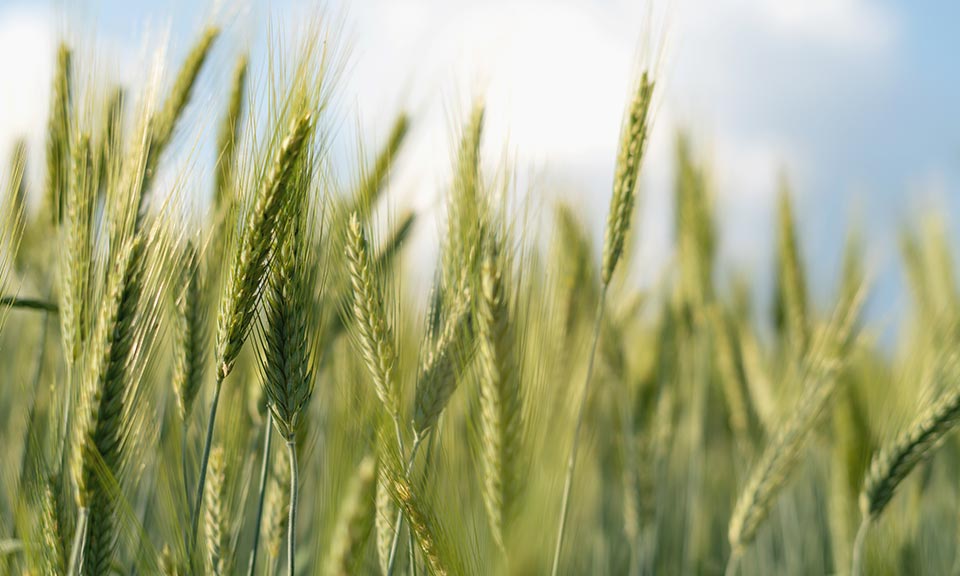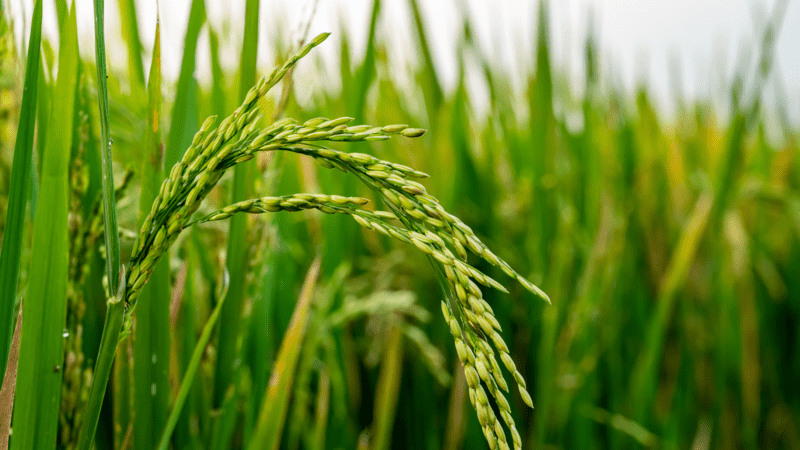The Big 4 of agriculture unlikely to exit Russia despite mounting pressure

Everything can be politicized, except food. This holds more relevance amid widespread protest and collective boycott calls against Russia's invasion of Ukraine since Feb. 24.
With hundreds of multinational companies exiting Russia, pressure is mounting on major agricultural trading companies to follow suit.
But is it too much of an ask? Probably.
The Big 4 of world agriculture – also called ABCDs – namely Archer Daniels Midland (ADM), Bunge, Cargill, and Louis Dreyfus are not expected to leave Russia, at least not in the short-term, analysts told S&P Global Commodity Insights.
Speculations of the Big 4 leaving have been rife in the market since the companies announced "downsizing of operations" in Russia.
Louis Dreyfus was the first of the four entities to halt its business in Russia in early March, before Bunge announced the suspension of any new export business from the country. On March 11, ADM and Cargill released statements signaling scaling back of their businesses in compliance with the EU sanctions.
Infographic: Sanctions on Russian energy and commodities explained
However, some analysts think that linking downsizing of operations with eventual departure from the country is too far-fetched.
"It is almost unthinkable that major agricultural companies will totally exit Russia as that will mean cutting-off the region's prime food supply source," a New York-based analyst said.
To say that Russia's grains supply is vital to satiate world hunger could well be an understatement.
As a transcontinental country spanning Eastern Europe and Northern Asia, Russia is a major global food supplier and world's top exporter of wheat, a stable crop for almost everyone on the planet. It also holds significance in global trade of sunflower oil, corn, barley, poultry meat, beef and chocolate confectionery products.
Commodity analysts see a definite trend: agricultural majors are adopting a prudent stance by weathering the storm and waiting for tensions to diffuse in the Black Sea region
Global agricultural companies have played a big part in Russia's resurgence as one of the world leaders in food supplies.
Through their sizable investments, including crushing plants and grains infrastructure, and extensive supply-chain network in Russia, the ABCDs have been an integral part of Moscow's food supply dominance.
So, the question of leaving all that behind must be tricky for these trading majors.
Calls for boycotting Moscow comes at a time when commodity prices have soared to rare peaks, generating tremendous profits for the agricultural trading houses.
Skyrocketing demand coupled with drought since 2020 in key producing regions of the world, such as South America and Black Sea, created a perfect storm for commodity prices to spike.
And then, Russia's invasion of Ukraine happened, which only escalated the tight supply-led price rally to an entirely new level.
Russia commands a significant chunk in global agriculture trade flow, especially for wheat and sunflower oil. For both these commodities, Moscow accounts for roughly 20% of global trade.
Ukraine is no slug either. It is one of the leading shippers of wheat, corn and sunflower oil, among others.
The ongoing geopolitical tension between these two leaders of global food trade clearly reflects on the price upsurge.
According to S&P Global, FOB Black Sea wheat (Russia, 12.5%) was assessed at $405.00/mt on April 12, up 68% on the year, while sunflower oil FOB Black Sea Ukraine (May) was estimated at $1869.50/mt, up 24% year on year. S&P Global assessed FOB Black Sea corn (Ukraine) at $334.50/mt, up 28% on the year.
The Big 4 have been coy about their long-term intentions on Russia and have not given any indication of leaving Russia for good.
In fact, they have justified their defiant presence in Russia on humanitarian ground of treating food as an essential commodity, bereft of politics and sanctions.
Despite sustained pressure from international community, Cargill has vehemently clarified that it will continue with its essential food and feed business in Russia.
"Food is a basic human right and should never be used as a weapon," Cargill said in a statement March 11. "This region plays a significant role in our global food system and is a critical source for key ingredients in basic staples like bread, infant formula and cereal."
ADM had also made its intentions clear in persisting with production and transportation of essential food commodities and ingredients in Russia. Bunge, meanwhile, has decided to carry on its crushing business in the country, which almost exclusively serves local consumers.
Interactive: Ukraine-Russia conflict shakes agriculture supply chains, raises food security concerns
Commodity analysts see a definite trend of agricultural majors adopting a prudent stance of weathering the storm and waiting for tensions to diffuse in the region.
"If any international agricultural company has operations, such as crush plants, inside Russia, we see no reason for them to quit," said Terry Reilly, senior commodity analyst with Chicago-based Futures International, an exchange brokerage group. "Once the tension subsides, and rebuilding begins, these global companies will again become vital to the Black Sea trade."
Brian Splitt, technical analyst with St. Joseph, Missouri-based agro consultancy AgMarket.net, mirrored this viewpoint.
"If the ultimate scenario of regime change [either in Russia or Ukraine] does happen, I could see western countries eager to resume full operations in the Black Sea region," Brian said. "It's a very fertile breadbasket and business opportunities are high."

News
India's wheat stocks in state-run inventories depleted to a 16-year low as the central government sold record quantities to augment domestic supplies and rein in rising prices amid poor crop yields during two previous seasons. Wheat stocks in government warehouses were at 7.5 million mt at the start of April, down from 8.4 million mt a year ago, an official at the Food Corporation of India told S&P Global Commodity Insights. Over the past decade, wheat stocks on April 1 averaged 16.7 million mt. Despite the sharp fall in stocks, the government was able to meet the buffer and strategic reserve norms that mandate holding wheat stocks at or above 7.46 million mt April 1. The government has planned to aggressively acquire wheat to replenish its stocks at state-run warehouses. The government plans to procure around 33.5 million mt wheat produced in marketing year 2024-25 (April-March), nearly 28% higher than the actual procurement of 26.2 million mt a year prior. India could not reach its wheat procurement target in MY 2022-23 and MY 2023-24, as heat waves weighed on the crop size. However, the pace of procurement has slowed over the past week as recent showers in key wheat producing states have delayed harvest operations, traders said. The government has pegged India's wheat output in crop year 2023-24 (July-June) at 112 million mt, slightly higher than the 110.55 million mt harvested in the previous season. However, an S&P Global Commodity Insights survey of 13 analysts and traders found India's wheat harvest in MY 2023-24 is likely slightly lower year on year, at 107 million-108 million mt. Recently, it has ordered mandatory declaration of wheat stocks available with traders, private warehouses, retailers and processors on a government-managed portal effective April 1 and every Friday thereafter, in a bid to ensure availability and prevent hoarding. Record sales The country has delved into state reserves to sell wheat to bulk consumers, as millers to try to curb domestic prices that have been above the state-fixed minimum buying price since the last crop was harvested. India has also provided repeated extensions to the scheme of distribution of free food grains to over 810 million beneficiaries under the Pradhan Mantri Garib Kalyan Anna Yojana for five years effective Jan. 1, 2024, has dampened the prospects for wheat and non-basmati rice exports in 2024. The move is aimed at ensuring food security to the beneficiaries, according to a government statement. The scheme, which was set to end this December, has been extended amid ongoing state assembly polls and upcoming general elections next year. However, if the government misses its procurement target, it may have to look for cheap imports or reduce import duty on the grain to ensure adequate domestic supplies. Despite the tight supply, it has been resisting calls to reduce or remove the 40% import duty on wheat. The government is also likely to extend export restrictions on wheat until March 2025. India banned wheat exports in May 2022, after domestic supplies tightened amid a drop in output. In marketing year 2022-23 (April-March), India planned to export nearly 10 million mt of wheat but ended up shipping nearly 5 million mt. Geopolitical tensions Benchmark grain, oilseed and vegetable oil futures rose overnight in the US and during morning trade in Asia April 19, reversing a bearish streak, after Israel launched a retaliatory missile attack on Iran, fueling fears of an escalating conflict in the Middle East. Any potential supply bottlenecks may spur a rise in export prices of wheat from Black Sea origin, traders said. The most active July soft red winter wheat contract on the Chicago Board of Trade rose 2.6% from the previous close to $5.675/bushel at 0320 GMT. As of 1640 GMT, the contract was trading at $5.62/bushel, up 1.67% from the previous close. In the EU, the Euronext milling wheat contract for May was up 0.4% from the previous close at Eur206.50/mt ($219.88) as of 1640 GMT. Platts, part of S&P Global Commodity Insights, assessed EU 11.5% wheat FOB CVB at $213.25/mt April 18, up $1/mt on the day.

News
Bayer AG has announced the pilot of an expert generative AI (GenAI) system that “quickly and accurately” answers questions related to agronomy, farm management and Bayer agricultural products. The pilot has been developed in collaboration with Microsoft as leading technology partner and Ernst & Young (EY) as an industry partner, the company said. The system is the result of Bayer using proprietary agronomic data to train a large language model (LLM) with years of internal data, insights from thousands of trials within its vast testing network and centuries of aggregated experience from Bayer agronomists around the world, the company said. “Our unique GenAI system has the potential to serve agronomists and benefit farmers all over the world, further advancing AI as an indispensable technology for agriculture,” said Amanda McClerren, CIO and head of digital transformation & information technology for Bayer’s crop science division. Bayer said it is exploring ways to integrate the expert GenAI system into its digital offerings, and the company anticipates broad opportunities for collaboration with other agricultural offerings and partners. “Bayer aims to expand the pilot of the expert GenAI system to selected agronomists and potentially farmers as early as this year, while continuing to advance a separate GenAI prototype allowing users to directly query their own farm data,” the company said. In addition, the partnership between Bayer and Microsoft enables the company to bring ready-made capabilities, AgPowered Services, to the agri-food industry, such as Bayer’s Historical Weather that brings a comprehensive weather dataset to Azure Data Manager for Agriculture that spans the last 40 years and provides detailed, field-level weather insights across global agricultural regions, the company said. Integrating tools from IBM, including from the IBM Environmental Intelligence Suite, the new capability, which was previously available for internal use only, can inform weather risk assessments and actuary processes, Bayer said. It will also be used by Bayer and others to forecast crop seasonality and production changes year over year, as well as train agronomic models, it said. Meanwhile, Bayer is developing a connector that enables access to irrigation data from Lindsay Corp., an industry-leading irrigation solution provider. This expands the data types available to Azure Data Manager's enterprise customers, making it possible for them to connect to irrigation data in the same way as weather, imagery, original equipment manufacturer (OEM) and other data types, the company said. The new cloud offerings will also support regulatory and sustainability reporting, such as providing supply chain traceability that can help ensure compliance with new laws such as the EU Deforestation Regulation, which is expected to go into effect at the end of 2024, Bayer said. This article was first published in chemweek.com. Photo credit: Bayer

News
Asia has seen the fastest growth in biofuels production and exports globally, driven by government policies and export markets for feedstocks. To capitalize on the boom, governments have rapidly pushed out biofuel mandates focused around their country’s main agricultural products. Presently, the largest biofuel producers in the region are China, India, Indonesia, Malaysia, the Philippines and Thailand. Here’s a ready reckoner for Asia’s major biofuel policies along with production, trade and prices. Click for the full-size infographic